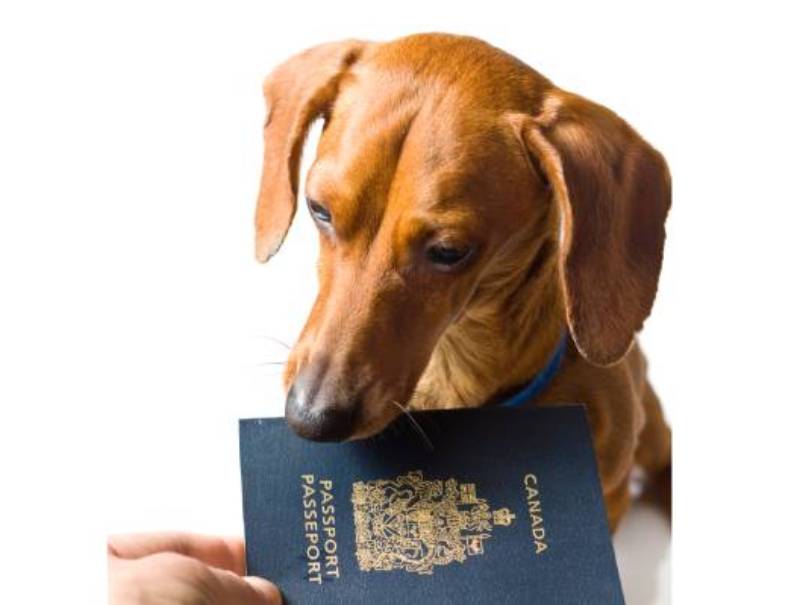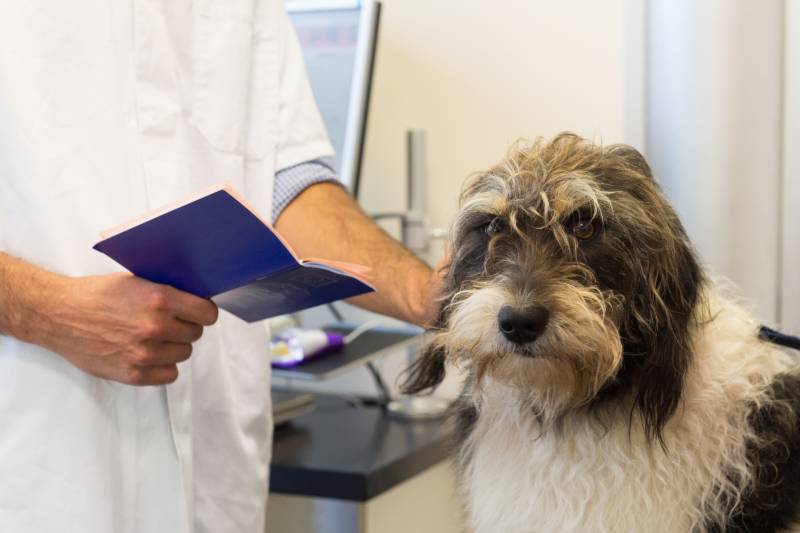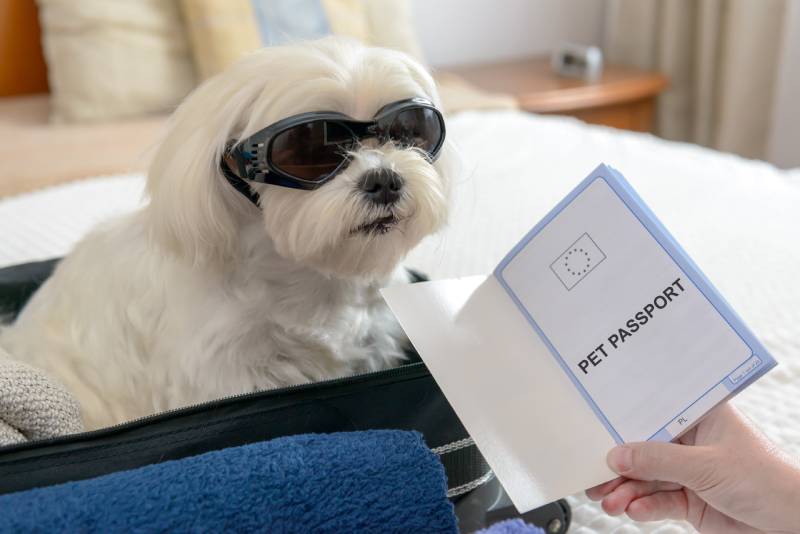Traveling is exciting and stressful—there are just so many things that you need to do, including packing, arranging flights and hotels, and preparing documentation. Traveling with your dog requires extra preparation, which includes documentation for them.
If you plan on taking your pup outside of Canada, you should know that there isn’t an actual Canadian pet passport. However, you will need certain documents; which ones will depend on where you’re traveling to.
The cost of your pet’s documentation also depends on several factors, such as where in Canada you live and what kind of pet you’re traveling with.
Here, we review the costs that you can expect and the kind of documentation that you’ll need when traveling with your dog.

The Importance of a Canadian Pet Passport
Before going anywhere, you need to have various documents that will show customs officials that your dog is healthy and has had all necessary vaccinations. Without any records or certifications, you might not be allowed to fly out of Canada.
You’ll need to look into getting the Canadian International Health Certificate for your pet, which is filled out by your veterinarian. This certificate will state that your dog is in good health and free from parasites and infectious diseases. This is particularly important for rabies vaccine verification.
Some countries might provide their own certificate that you will need to fill out, and others require specific health certificates from the Canadian Food Inspection Agency (CFIA).

How Much Does a Canadian Pet Passport Cost?
You’ll need to make an appointment with your veterinarian to complete the Canadian International Health Certificate. At a minimum, you’ll need to pay the exam fee to have your vet fill out the form.
If your pet needs their vaccines updated, you’ll need to pay for this at the time of the appointment. If your dog hasn’t been microchipped, some countries might require them to be microchipped, and it’s also good peace of mind for you in the event that your pet gets lost, so that you can find them more easily.
Here are the fees of three different vet clinics in different parts of Canada to give you an idea of how much you might need to spend.
| Procedure | West (BC) | East (Ontario) | North (NWT) |
| Examination | $49 | $66 | $75 |
| Dog Vaccines | $69–$112 | $68+ | $75+ |
| Cat Vaccines | $69–$112 | $49+ | $30 |
| Microchipping | $65 | $45 | $75 |
Prices vary greatly depending on where you live and your veterinary clinic. In rural or remote parts of the country, you might need to pay more and travel farther to an animal hospital.
Once you have the certificate filled out, you need to mail or drop it off at the nearest CFIA for endorsement by a CFIA vet, which will cost you $20. All these costs must be paid separately for each pet you’re traveling with.
It should be noted that the Canadian International Health Certificate should be printed on legal-sized paper (8.5 x 12”) but letter-sized (8.5 x 11”) is also acceptable.
Additional Costs to Anticipate
Additional costs are possible depending on what country you are traveling to. Some countries expect your dog to have the rabies-neutralizing-antibody-titre test, which tests for the level of rabies antibodies in their blood.
Kansas State University in the United States is the laboratory used for this test for Canadians traveling to Australia. The charge is $84, and you’ll additionally need to have your vet draw the blood sample, which is centrifuged and sent to Kansas. This bloodwork is another fee, which could range from $80 to $150.
We used Australia for this example because it has the strictest import conditions in the world. Some countries will not require the same kind of stringent conditions for your pet, so how much you pay for additional costs will entirely depend on the country you are entering.

What If the Country Has No Certificate Requirements?
Some countries do not require an export certificate and won’t provide you with one. In these cases, you need to contact the embassy or appropriate veterinary officials in the destination country for their current import requirements.
Bear in mind that the process of these negotiations can potentially take months, so you need to plan well in advance for your travel plans. Contact your closest CIFA animal health office to ensure that you have everything lined up properly.
What If You Need to Travel Through Other Countries?
The European Union (EU) requires all pets (cats, dogs, and ferrets) to meet specific conditions. Before traveling, you should be familiar with these conditions in order to have a smooth traveling experience with your pet.
The animal health certificate is bilingual and must be completed in the official language where your dog will first enter or just transit through the EU.
So, if you’re traveling from Canada to Austria but have a stopover in Spain, you will need to use an English/Spanish certificate. You can use this list of EU Member States with their official languages to ensure you fill in the appropriate form.

What If You Have an Exotic Pet?
In Canada, exotic pets are pretty much anything that isn’t a cat, dog, or ferret. So, if you have a lizard, rabbit, or parrot, you’ll need specific permits for your pet before leaving Canada. In such instances, you’ll need a permit from the Convention on International Trade in Endangered Species of Wild Fauna and Flora (CITES).
CITES helps prevent the over-exploitation of wildlife through illegal poaching and international trade. So, if you happen to be traveling with an exotic pet listed through CITES, you will need a permit. It is actually illegal to bring a CITES-listed animal across many international and Canadian borders without a CITES permit.
If you travel with your pet frequently, you can apply for a Certificate of Ownership. However, you must be a Canadian citizen and only take your pet out of Canada temporarily and for personal purposes. This certificate is valid for 3 years and authorizes multiple exports and re-entry into Canada by some countries, the United States being one.

Summing Up
Traveling alone can be highly stressful, but traveling with your pet might be overwhelming if you aren’t adequately prepared. Once you’ve booked your trip, you should be immediately on top of contacting your vet and other officials in the destination country.
As mentioned, waiting for some tests or certificates to be endorsed and finalized can take months, and you don’t want to be waiting for them when it’s time to get on the plane.
Ensure that you keep the lines of communication open with your vet, and ask as many questions as possible so you have all of your bases covered.
- See Also: Can You Bring Your Dog to Canada?
Featured Image Credit: Monika Wisniewska, Shutterstock



















